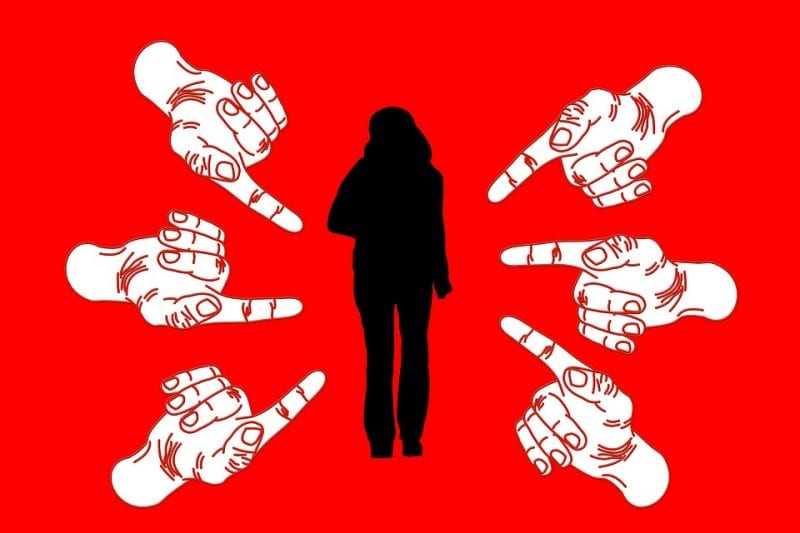
As adults, we all have some self-defined boundaries. There are some things we refuse to do – things that never even cross our minds. It may be something as innocuous as what we eat for breakfast. Or it can be more significant decisions like what jobs we consider respectful, and what kind of a person we want to marry. But have you stopped to think to yourself – why have you created these invisible boundaries around yourself? The answer is more complicated than you can imagine.
What is the most common trap that almost all of us have fallen into? It is conforming to the ‘norms’ that have been created by the society around us. This is known as social conditioning. Even if these norms are outdated, false, misleading, or do not align with the present world – we conform to them nevertheless. This is because we grew up believing in them and seeing them adapted by everyone around us.
Let’s try to understand what social condition is, what its implications are, and how you can decondition yourself.
Social Conditioning Definition
SUMMARY
Social conditioning refers to training people to think and act in a certain way by using positive and negative reinforcement by society. It starts at birth, and there are several factors that promote social conditioning.
Social conditioning is the process by which people of a certain society are trained to think, believe, feel, want, and react in a way that is approved by the society or the groups within it.
Social conditioning begins when we are just babies, and it becomes more apparent in childhood and adolescence. However, it goes on our entire lives. The agents of social conditioning can be parents, teachers, our peers, teachers, popular culture, mainstream media, novels and movies, the church, etc.
Social conditioning works by rewarding behavior that is acceptable and punishing thoughts and actions that are not acceptable. It also involves the repetition of the same message over some time. This forces young children’s brains to accept it as the truth.
Why is Social Conditioning Bad?
SUMMARY
Statistics reveal the effects of harmful social conditioning – increased divorce rates, a spike in the incidence of disorders, like diabetes and increased the frequency of mental health problems.
It’s pretty clear how dangerous social conditioning can be. Ultimately, it is a form of irrational education where children are forced to adopt beliefs at a young age. Additionally, most of these beliefs have no basis in reality. It’s brainwashing and social herding, and it results in children growing up into adults that have behaviors, beliefs, actions, and emotions that have no logical motive or substantial evidence.
The result is that there are many people who have unscientific ideas, toxic emotions, unhealthy ideas, and ineffective behaviors. Don’t believe us? Here are the numbers:
- More than 50 percent of marriages in the US end in divorce or separation.
- Nearly 10 percent of Americans have diabetes.
- Approximately 17.3 million American adults or about 7.1% of the US population is affected by a major depressive disorder every year.

Examples of Harmful Social Conditioning
SUMMARY
How social conditioning affects us physically, financially, and personally.
Here are some of the ways social conditioning harms us:
1. Sales of extreme diet programs, steroids, surgery, toxic pills, etc. are increasing exponentially. This is a result of the socially acceptable premise that dictates that being thin is a sign of good health.
2. Blind consumerism and materialist supported by society are pushing people to work longer hours and buy things they don’t need.
3. Social conditioning forces us to form relationships based on physical appearances.
Escaping the Herd and Taking Charge
SUMMARY
Different types of harmful social conditioning behaviors need to be rectified in different ways to escape the herd mentality.
In some cases of social conditioning, simply identifying the incorrect behavior is good enough to recondition yourself, but in other cases, it might take a while before you can end the influence of the conditioning.
For example, if it is something as simple as the belief that a hearty meal in the morning is essential, just knowing that intermittent fasting has immense health benefits can help you change the way you have been conditioned to think.
On the other hand, when social conditioning affects your thinking or emotions, it cannot be controlled consciously. For example, if you have been conditioned to think that a specific group of people are of ‘lower status’ because of the color of their skin – simply knowing the scientific research that falsifies such claims will not be enough.
You have been exposed to such ideas so many times that it is now deeply ingrained in your brain. In such cases, you need to train yourself to think differently. This involves deep introspection and making it a point to practice a better way of thinking deliberately.
You also need to decrease your exposure to bad social conditioning. This means reducing contact with mainstream media, traveling, and removing yourself from the environment where this type of thinking is part of the popular culture.
Challenges Against Deconditioning
SUMMARY
The three challenges you may face while trying to break the social conditioning barriers – lack of time, energy, and focus.
Unfortunately, social conditioning is so pervasive that it has molded every aspect of your life since birth. To escape this herd mentality and break out of the rut, you will have to put in some hard work, and you will face some severe challenges.
Time
Here’s a breakdown of an average American’s lifestyle:
Forty hours at work every week. Fifty-six hours of sleep every night. And the rest of the time spent on meals, commute, personal hygiene, family responsibilities, childcare, paying bills, maintaining homes… the list is endless.
There is little time left for any personal growth or pursuits like deconditioning yourself.
Energy
Most of us do not have the energy to do what we need to do to break out of the barriers. After spending hours at the office, there is very little juice left to devote to the pursuit of deconditioning. If you return home exhausted 5 out of 7 days, there is no way you will have any energy to explore self-growth and critical thinking.
Focus
Even if we assume that we do have the time and energy to focus on escaping the herd – the last challenge remains. Where do you focus yourself to accomplish this task?
Only you can answer the question. You need to find out what holds significance to you and what is it that you want to devote your precious hours. The truth is that most people have no idea what it is they want out of their life. To escape the mob mentality and grow as a unique individual, you must find what you are passionate about and devote all your time and energy to it.

How to Overcome Challenges to Social Conditioning
SUMMARY
Overcoming social conditioning involves – not assuming you are above it, being reflective, not overspending, being critical of the media, studying social sciences, and traveling.
To overcome the challenges mentioned above to social conditioning, you need to develop an understanding of this phenomenon and recognize the acts performed under its influence. Here’s how you can do it:
1. Do not think you are above social conditioning

Patronizing as it sounds, it simply means not assuming you are above social conditioning. A lot of us fall in the trap of thinking we are above the influence of society or anyone else, but this is not true. This very assumption could mean that you are the biggest slave to social conditioning.
2. Be introspective

The first and foremost action plan is to develop a deep understanding of yourself. Question everything you believe and ask yourself – why do you see things the way you do? How did a belief become internalized? What leads you to your conclusions?
Keep challenging yourself and look for the chain of thinking that led you to your current conclusions. The more you gain the ability to critically examine your thought patterns and analyze your belief system, you closer you are to decondition yourself.
NOTE
It can be quite difficult to question your entire belief system at once. You may want to give up when you don’t see any results in the beginning, but eventually, you’ll become more self-aware. That is a huge reward in itself.
3. Be fiscally conservative

This may seem irrelevant, but the truth is that you will find it challenging to grasp higher truths when you are worried about living paycheck to paycheck. When all you can think about how to pay the next bill, deconditioning and spiritual quests take a step back.
Stop buying things you don’t really need, which is a product of social conditioning. Take a step back to analyze your spending habits. Try to work out a way where your financials are secure in the long term. This will save a lot of energy that you would otherwise spend thinking about how you will take care of the next expense.
4. Be skeptical towards mainstream media

Try to see things for what they are, instead of how they appear. It will seem confusing initially, but try to find different sources for the same piece of information. This will help you extract the truth and discard the false narrative.
Be skeptical of everything. Do your own research. And always seek alternative views – even if you do not necessarily agree with them. This will prevent you from closing yourself off into an echo chamber and keep you open to opposing views.
There are two classic examples of false information fed by the mainstream media. The first is the diamond engagement ring scam. And the second is breakfast foods’ corporation false claim that breakfast is the most important meal of the day.
5. Study the social sciences

Social Sciences will help you understand how a society works, what motivates people, and how their behavior is affected by society. Once you learn social psychology and behavioral psychology, you will also learn how to question other people’s actions and intentions. Moreover, you will also gain insights into your behavior.
TIP
Social Sciences will help you understand the societal motivation that affects a person’s decision-making process and ultimately allow you to make better choices.
6. Travel

Much of social conditioning can be attributed to our culture and the society we are raised in. All communities have certain cultures and customs that shape the way its people think and what they believe.
Traveling will give you a chance to witness other cultures. You will also see how wildly different things are once you escape your societal bonds. Psychologist Adam Galinsky’s extensive research reveals how traveling can broaden the mind and helps people break out of entrenched habits.
TIP
Reconditioning and taking charge is stressful and exhausting. If you are finding it difficult to retrain your mind by yourself, it may be worth seeking the help of a psychologist or mental health professional.
How Does Social Conditioning Affect Our Behaviour?
As humans, we like to believe that we are the dictators of our decisions in life, but in reality, what we do and how we behave has been programmed into us since we were born. We are programmed to behave according to social situations. This kind of social conditioning is built into us by our parents, the education system, as well as several other institutions in life.
These social norms, when unacknowledged and blindly followed for the long term, can lead to many significant effects on our behavior. Some of them are as follows:
People
Depending on their social conditioning, people tend to have different beliefs when it comes to another group of people. For instance, different people have different opinions about the homeless. Some people think that they are responsible for their own misfortune, while others think that society needs to step up and help them.
On the other hand, some people have very strong ideas regarding how one can end up on the streets. They think that it would never happen to them, so it must be the fault of the person on the streets.
Such beliefs do not come on their own. They are a result of our social conditioning. Since society tells us that hard work and intelligence are a way to succeed in life, we end up believing that anyone who is not doing well must either be lazy or dumb.
The truth is that statistically speaking, we are only 3 paychecks away from ending up on the streets. Thus, how can we be sure that it is always the fault of the individual, not his/her circumstances?
Religion
Our strong beliefs in one religion over another is majorly shaped by what is taught to us as parents and teachers from when we were younger. And, as we grow up, we learn to accept them instead of questioning them. We do not question what is right and what is wrong and take comfort in being ignorant.
Language
As kids, some of us are taught that ‘immigrants’ eat up our jobs and resources, that ‘poor’ people cannot share the same dining table as you, and that ‘boys don’t cry’ and ‘girls have to super skinny to become a model’. Depending on what your media tells you as well as what your elders taught you, you associate language to things that may or may not be right.
Right-wing media often views immigrants in a negative way, so people who grew up in households that support ring wing politics will see immigrants as people who create problems. They may think of closing the borders for them, or they may think that the country is too full of them.
On the other hand, some other people may think of immigrants as qualified doctors, nurses, foreign students, NHS staff, or even expats who live abroad. Thus, depending on the type of conditioning you have received, the meaning of different words may be different for some people. It reveals the subconscious bias inside your mind that has been created due to social conditioning.
Social Media
The trickiest of them all, social media can help us be aware and informed but it can also manipulate us into creating an artificial online personality where everything is perfect and we are always all glammed up.
We are conditioned by society to always look great and be happy, otherwise, there might be something wrong with us. But the truth is that life is messy, and there are so many people committing suicides, people dying, and people who are depressed and battling anxiety.
We are using social media to live up to social expectations because we are conditioned to think that’s the only way to live.
NOTE
All types of conditioning behaviors are a result of repetition, as per classical conditioning theories. This also includes social conditioning behaviors. In Pavlov’s dog experiment, Ivan Pavlov demonstrated that a particular stimulus can result in a specific behavior. This type of repetition and influence can also be seen in operant conditioning.
Watch How Social Conditioning makes someone sick –
How Can You Spot Social Conditioning?
Every decision we take in life is, in some way or the other, colored by our past experiences and learning. Some would even claim that humans are still prey to the oldest method of learning – social interactions and conditioning. But, how do you differentiate between that and the reality?
To spot social conditioning from really wanting and believing in something, you must be open to awareness and to questioning – the self, the society, and everything you have learned to believe in. Do so by picking every aspect of your life and asking yourself these questions:
- Why do I want what I want? – Ask yourself the purpose of wanting something. Is it something that you cannot live without? Is it something you need? Or, is it something you thought you needed?
- How long have I wanted it? – Is this something new that you desired? Or, have you always dreamt of achieving it?
- Is there a specific person behind what I want? – What made you want this so bad? Was it a new realization with a friend or a family member? Was it out of an unmissable opportunity with a peer member? Did an idol inspire you?
- What do I get after I achieve it? – Happiness? An everlasting bond? Love? Professional growth? Personal gratification? Prosperity? Or, are you doing it just for the sake of doing it?
- Is this your goal or just settling down with what is convenient?
- If there was a possibility that you may not succeed in obtaining this, would you still go for it? How many times would you try for it before you give up?
- If no one were to know of your accomplishments, would you still do it?
- What are you willing to sacrifice for this?
What is Cultural Conditioning?
In simple words, cultural conditioning comprises your thought process, the way you speak, your religious beliefs, political opinions, the way you behave, your ability to see right from wrong, and almost everything else.
A lot similar to social conditioning, it is primarily influenced by your family, neighborhood, teachers, friends, and culture.
Let us look at some of the examples of cultural conditioning:
- Think of someone who grew up in a big city, with all the modern comforts of life being easily provided to them. Compare that to someone who was raised in a small town with a questionable level of education, parents’ unable to provide for them, and a neighborhood known for nuances.
- Another difference is between an individual who grew up in a harmonious and respectful environment and learned to project the same in their behavior as opposed to someone who was raised in a dysfunctional family, with addict parents and mental health issues.
- If you are familiar with gender equality, it would be strange for you to be in a nation where women have to fight for their rights.
- If you were raised in a country with a corrupt government, your belief in the system would be much lower than those who have been led by a fair and righteous leader.
Cultural conditioning continues for as long as you live. No matter how many times the situation changes, your beliefs in culture, religion, spirituality, and family life remains the same – unless you start questioning what you believe in.
Social Conditioning vs Cultural Conditioning
There is no tangible difference between social conditioning and cultural conditioning, at least from the point of view of a layperson. Both terms are used interchangeably in pop culture and refer to the training of individuals in a way that is consistent with socially approved behavior.
There are many other terms that are used to describe social conditioning or cultural conditioning. They are – social engineering, herd mentality, and mob mentality. All these terms are used interchangeably in pop culture, although there are subtle differences if you study social sciences and social psychology in depth.
Closing Thoughts
The truth is that social conditioning is, ultimately, a lifelong journey. The beginning is bumpy, but it straightens out eventually. And it keeps going on our entire lives. You will always find something you think about in the wrong way. There will always be opportunities to rectify them.
Deconditioning allows you to get rid of the terrible effects of herd-mentality, and become in charge of your own destiny. It will enable you to become a more confident, happy, and successful version of yourself.
Find people who are above social conditioning, rise above the indoctrination, and choose how you want to live your life. As the millennials say – you only live once, right?
We get little commissions for purchases made through links in this post. Our editors carefully choose to promote only those products/services that resonate with our readers.
Surabhi has a deep passion for words. She puts her heart and mind into whatever she pursues and craves for creative ventures. She has always been keen on creating original content that can make a difference. In her experience as a content writer, she has had the opportunity to work on several fields with Psychology being her favorite. Surabhi says, words have the power to transform the world, better than a sword. So she hopes to contribute her bit to this revolution. At TheMindFool, she feels lucky to have the opportunity to share content capable of bringing about a change in the lives of the readers.
